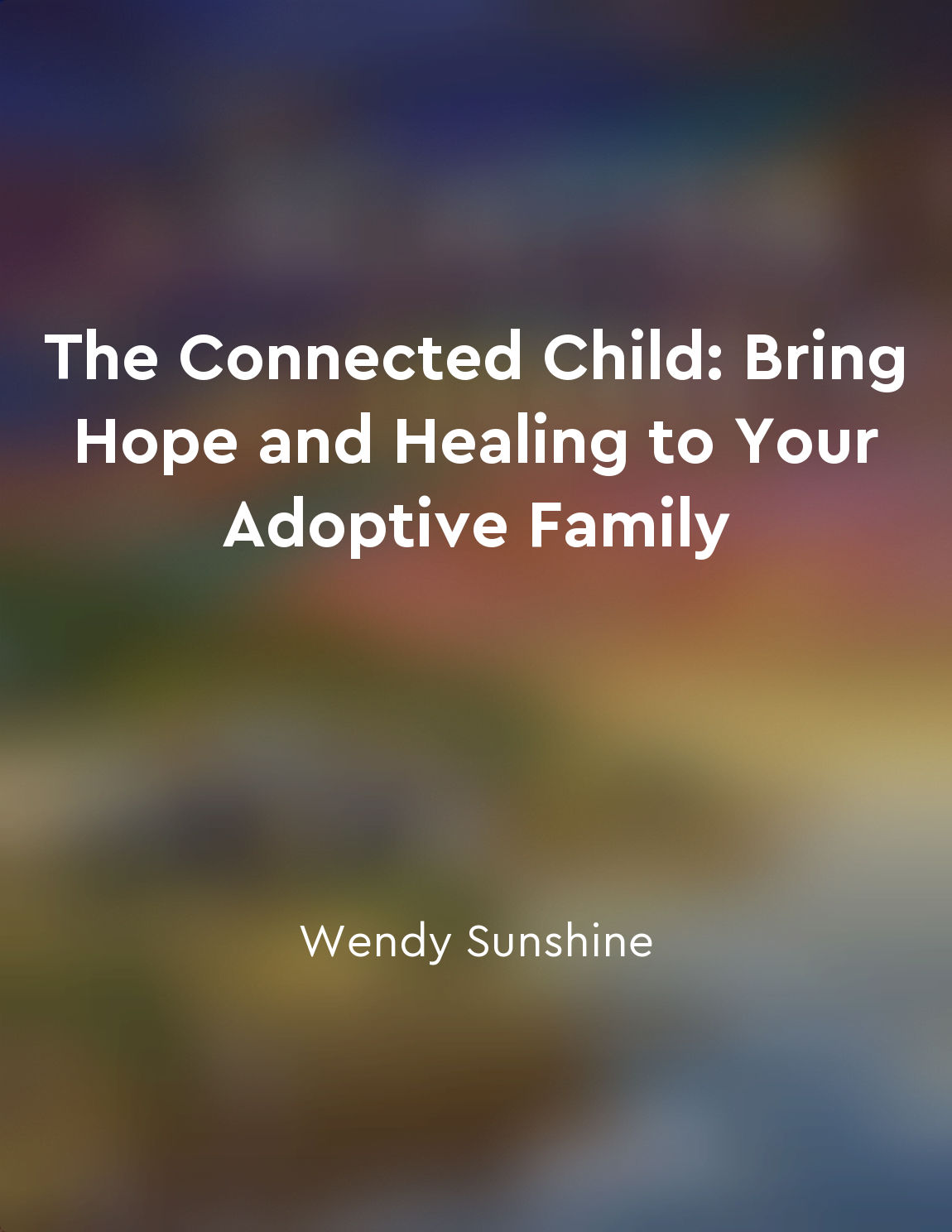Trauma can impact a child's behavior from "summary" of The Connected Child: Bring Hope and Healing to Your Adoptive Family by Wendy Sunshine,David Cross,Karyn Purvis
When a child experiences trauma, whether it be from abuse, neglect, or other adverse experiences, it can profoundly affect their behavior. This impact is not limited to just the immediate aftermath of the traumatic event; rather, it can have lasting effects that manifest in various ways throughout the child's life. These behavioral changes can be confusing and challenging for both the child and their caregivers to navigate. Children who have experienced trauma may exhibit a wide range of behaviors that can be difficult to understand and manage. They may act out aggressively, have difficulty trusting others, struggle with emotional regulation, or exhibit other challenging behaviors. These behaviors are often a coping mechanism for the child, a way for them to try to make sense of and manage the overwhelming feelings and experiences they have endured. It is important for caregivers to recognize that these behaviors are not intentional or malicious; rather, they are a direct result of the trauma the child has experienced. By understanding the root cause of these behaviors, caregivers can respond to them with compassion and empathy, helping the child feel safe and supported as they navigate their healing journey. In order to effectively support a child who has experienced trauma, caregivers must be patient, consistent, and understanding. It is essential to create a safe and nurturing environment where the child feels secure and valued. By building a strong and trusting relationship with the child, caregivers can help them begin to heal from their traumatic experiences and develop healthier coping mechanisms.- It is crucial for caregivers to approach the child with love, patience, and empathy, recognizing that their behaviors are a reflection of the pain and trauma they have experienced. Through this compassionate approach, caregivers can help the child feel seen, heard, and understood, laying the foundation for healing and growth.


